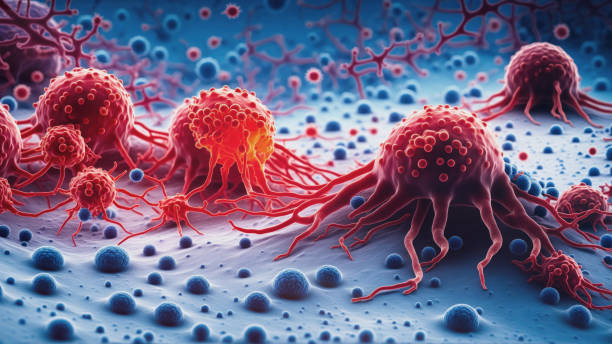By William A. Baruwa
The demand for Taxol—a widely used chemotherapy drug for breast, ovarian, cervical, and lung cancers—is on the rise. However, its production has long been a challenge: expensive, complex, and heavily reliant on environmentally taxing chemical processes. That’s because, until now, scientists had been unable to reproduce Taxol biosynthetically.
After three decades of global research efforts, scientists at the University of Copenhagen have finally cracked the code. They’ve identified the last two elusive enzymes needed to complete the biosynthetic pathway that gives Taxol its cancer-fighting properties. This discovery paves the way for sustainable, biotech-based production of the drug.
With biosynthesis now within reach, Taxol could be manufactured more efficiently and at significantly lower cost—potentially halving its price—while dramatically reducing the environmental footprint of its production.
“Taxol has been the Holy Grail in this research field for decades because it’s an exceptionally complex molecule. But with the discovery of the final two enzymes, we now fully understand how it’s formed. This has allowed us to develop a biotechnological method to produce taxol in yeast cells,” says Sotirios Kampranis, Professor at the Department of Plant and Environmental Sciences and senior author of the study published in Nature Synthesis.
The method works by cloning the genes responsible for Taxol production from the yew tree and inserting them into yeast cells. These genetically engineered yeast cells act as tiny bio-factories, equipped with the complete set of instructions needed to produce Taxol.
This breakthrough could be especially impactful for women in developing countries, where access to affordable cancer treatment remains a major challenge.
The research team at the University of Copenhagen has filed for a patent on the technology and is preparing to launch a spin-out company focused on producing biosynthetic Taxol at scale.
“Using this method, we can produce Taxol cheaper than current conventional methods. Looking ahead, once we refine the process further, we expect to be able to reduce the cost by half,” says Assistant Professor and first author Feiyan Liang.
Lowering the cost of Taxol is especially urgent as ovarian cancer rates continue to climb worldwide. By 2050, the number of cases is expected to surge by over 55%, with the majority occurring in low- and middle-income countries. During the same period, deaths from ovarian cancer are projected to rise by nearly 70%.
At present, Taxol costs more than USD 20,000 per kilogram, ranking it among the most expensive active pharmaceutical ingredients in use—placing a significant burden on healthcare systems and limiting access to treatment for many women globally.
“We see increasing demand for Taxol in many developing countries, where the high price is a major barrier. We hope our work will contribute to lower-priced drugs so that more people can have access to cancer treatment,” Feiyan Liang says.
A More Sustainable Solution
The new method offers not only a more affordable way to produce Taxol but also a significantly more sustainable one. Unlike traditional chemical synthesis, it avoids the use of toxic chemicals and solvents, reducing environmental harm. Additionally, it enables the use of less refined, more readily available extracts from yew needles as starting material—far cheaper than the highly purified substances required for chemical semi-synthesis. To further boost sustainability, many of the materials used in the process can be recycled.
“We want to show that it’s possible to build a biotechnological drug production that is both sustainable and low-cost. There are very few examples of that today, but we now have the foundation to make it happen,” says Sotirios Kampranis.
TWO TREES PER TREATMENT
· Taxol was originally extracted from the inner bark of the Pacific yew tree (Taxus brevifolia). However, because the bark contains only a small amount of the compound, producing the drug required stripping the bark entirely—killing the tree in the process.
· Yew trees take between 70 and 100 years to reach maturity, and it took approximately two trees to produce a single treatment. This approach was highly unsustainable and was eventually phased out, although wild yew populations remain under pressure in some regions.
· Today, Taxol is typically produced through chemical synthesis using a related compound extracted from yew needles. While this method spares the trees, it remains expensive, contributing to the drug’s average price of over USD 20,000 per kilogram (source: https://www.pharmacompass.com/price/paclitaxel).





